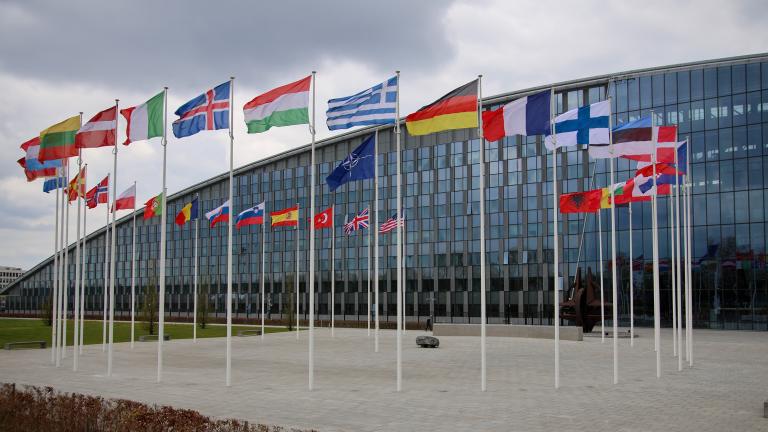Editorial - March 2023
Temps de lecture : 4 min
That bit extra:
is extraterritoriality the new frontier of extra-financial?
Are we unknowingly heading towards a European counteroffensive through the duty of vigilance? Or towards a double punishment?
For several years now, the concept of extraterritoriality mainly manifested itself as an instrument of US law, regularly and widely used punitively to penalise foreign actors accused of "doing business" with countries subject to US sanctions and de facto considered not fit to be associated with.
One of the most representative examples was the all-category record of the nearly $9 billion fine handed to BNP in 2014 for using the US dollar as a currency for transacting with countries under US embargo. Nearly ten years later, this resulted in BNP's near-complete withdrawal from US territory.
Here, extraterritoriality is a blatant example of the economic weapon used by the US to weaken European banks. Remember that the financing of the economy primarily takes place through banks in Europe and that European economies are far more open internationally.
« Will the European Union unintentionally take its extraterritorial revenge by introducing future legislation on the duty of vigilance for businesses? »
Also remember that France has been a pioneer in this area, with its Duty of Vigilance Act in 2017. Although the idea is nice, as is very often the case the economic reality could alter the initial intention.
Very recently we had a first concrete insight into the potential impacts of these new laws on businesses, with the legal proceedings brought against TotalEnergies by several NGOs.
Some would describe the NGOs' action as a stimulus to force businesses to move towards "more virtuous behaviour". In simpler terms, this significantly increases the legal risk for all businesses. At a European level, we can already imagine the overall social and financial cost that would be generated by courts backlogged with multiple cases of this kind. The subject is all the more important because, in a still highly globalised economy with fragmented supply chains, the scope of these laws is by nature and intentionally extraterritorial.
The similarity with US extraterritoriality is limited to the sanction aspect. Conversely, the main difference is that what could and even should be a powerful tool will very probably backfire on European businesses.
Indeed, European companies will soon have to demonstrate unparalleled transparency in their business dealings, which will undoubtedly be taken advantage of by their competitors, even before being of any interest to investors.
It is likely there will be little or no reciprocity, with concepts from the English-speaking world being imported into mandatory reporting on a one-way basis. One example is "affected communities", the notion of which is already included in future European reporting standards, and this was precisely one of the NGOs' angles of attack in their action against TotalEnergies. Essentially, this leaves room for infinite interpretation on the limitation of liability.
It is by no means clear that Europe will ultimately come out on top by adopting so many moralising extraterritorial virtues universal in their scope.

Yannick TATIBOUËT
Director of Strategic Intelligence, External Relations, and coordination on sustainable finance
March 8, 2023
Covéa Finance, a portfolio management company of the MAAF, MMA and GMF groups with share capital of €24 901 254, incorporated as a single-person simplified joint stock company, registered with the Paris Trade and Companies Register under number 407 625 607 and approved by the French Financial Markets Authority under number GP 97 007.
This document is produced for information only and cannot be considered as an offer to sell or investment advice. It does not constitute the basis for any commitment of any kind, nor a strategy assessment or any recommendation to invest in financial instruments. It contains general and non-personalized opinions and analyzes designed by Covéa Finance on the basis of figures that it considers reliable on the day of their establishment depending on the economic context, but the accuracy and validity of which are however not guaranteed. The views expressed in the document are subject to change without notice. Covéa Finance cannot be held responsible for any decision taken on the basis of information contained in this document. This document is the intellectual property of Covéa Finance. Any Use (defined below), reproduction or distribution of all or part of this document must be subject to the prior authorization of Covéa Finance. The recipient of this document is aware of and accepts that the quantified data, allowing the establishment of general and non-personalized opinions and analyzes, may be subject to the acquisition of rights vis-à-vis third parties. Therefore, the encrypted data may under no circumstances be the subject of any use by the recipient of the document without the prior acquisition of the necessary rights directly from the third party holders of these rights. Furthermore, the recipient of this document is aware and accepts that Covéa Finance will in no way be responsible for any use made of said encrypted data and will alone assume all the consequences vis-à-vis third parties who hold the rights associated with this data. "Use" is understood as, and without limitation, the manipulation of encrypted data, distribution, redistribution, integration into an information system or into documents of all types.


